

 Oh, it’s that time! The season of looking back at the year and seeing what you did or didn’t get done. And the season for starting to nominate for awards. I’ve been reading and recommending for a while now, but it’s always fun to read all the wrap-up posts and find anything that I missed. I do have a monster post full of some of this year’s reading, but I’m still working on that. (When I have it, there will be a link here.)
Oh, it’s that time! The season of looking back at the year and seeing what you did or didn’t get done. And the season for starting to nominate for awards. I’ve been reading and recommending for a while now, but it’s always fun to read all the wrap-up posts and find anything that I missed. I do have a monster post full of some of this year’s reading, but I’m still working on that. (When I have it, there will be a link here.)
Writers wondering whether or not they should put up an awards eligibility post, the answer is yes, yes you should. Do us all the favor of collecting your stuff and making it easy to find. If you’ve got a lot, point out some favorites.
The stories of my own I am pushing this year are “Left Behind” (short story), “Red in Tooth & Cog” (novelette), “Haunted” (novella co-written with Bud Sparhawk), and the fantasy collection Neither Here Nor There. SFWA members should be able to find copies of those on the member boards; I am happy to mail copies to people reading for awards whether or not you are a member. Drop me a line and let me know the preferred format. I am looking for reviewers interested in Neither Here Nor There and happy to send copies as needed.
...

 If you’re not familiar with SFWA’s official statement on Galaktika, here it is. If you’re unfamiliar with the situation overall, here is A.G. Carpenter’s write-up and here is Bence Pinter’s Hungarian article.
If you’re not familiar with SFWA’s official statement on Galaktika, here it is. If you’re unfamiliar with the situation overall, here is A.G. Carpenter’s write-up and here is Bence Pinter’s Hungarian article.
The SFWA statement is the result of a lot of work behind the scenes on the part of SFWA’s Grievance Committee, and I’d like to use this opportunity to both thank that committee and explain why it’s one of the answers to “why should I join SFWA?” (There are, in my opinion, a number of others.)
When I first became aware of what Galaktika had done, at first I had difficulty comprehending the scale of it. Surely it had to be a few stories rather than just one or two…but no, it was, literally, dozens. Then three figures worth of stories. Holy criminently.
The excuses that were sent to me as well as others over the course of the investigation chronicled here were manifest and sometimes a bit whiney. I was told that one author’s had been told their book had cost the company money and that therefore they owed it to the company to allow their work to be reprinted as advertisement for the other work.
In all of this, my hands were tied. What, realistically, could SFWA do, given legal and travel costs?
...
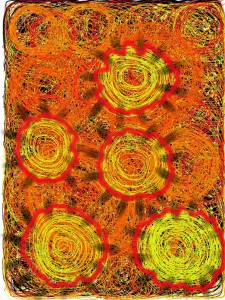
Like many folks, I read the Fireside Fiction report with dismay and anger, but not a lot of surprise. We’ve been talking on the SFWA Board about the findings this past week.
What can SFWA do about it? I could go in full guns blazing and demand that every editor involved in the situation resign and threaten to take markets off the Qualified List if they don’t shape up immediately. This action would, however, probably get nipped in the bud the minute I proposed it to the rest of the board. As I’ve noted before, SFWA is slow and hard to steer. Enforcement on this level is also difficult and impractical, I think, because this selection doesn’t usually happen in the open or in an overt way.
One of the reasons I keep insisting that magazines should be reading blind is that unconscious bias plays a major part in selecting things, which has been demonstrated in study after study. Conventions should be doing panels not on why to read blind, but how to implement it in a working way. Can we insist that magazines read blind? It might work better to encourage it, perhaps, by publicizing the ones that do. And I will point out that magazines who specifically say they welcome diverse stories seem to get more. Submission guidelines do matter.
So do slush readers. They’re one of the first lines of defense around those markets. Magazines need to pay attention to their slush readers, and train them read outside their comfort zone in order to find good stuff. A editor that doesn’t dip into the rejected pile every once in a while may miss some gems as well as a chance to teach their slush readers. That’s how I found Jessica Lee’s Superhero Girl.
One of the more radical things SFWA’s done during my time on the Board is to admit independently and small press press writers. One focus since then has been making sure we give those writers the resources they need not just to write, but to promote their work. This is a good step, but insufficient in this case. Self-publishing is one of the ways around the gatekeepers, but L.E.H. Light mentions this in her piece, “The Fireside Fiction Report: A Reader/Critic’s Perspective“, saying:
“What level of segregation are we headed towards when we get comfortable with having ONLY our own publications as our voice in the genre? And what alternative sources of success, cash flow, and critical acclaim are we walking away from? Can we not have both our own publications and inclusion in “mainstream” works, thereby reaching wider audiences and providing opportunities for more writers? This is an eternal debate, and one which there need never be a solution to. But it is one we need to continue to have, in conjunction with a dedication to support both “streams” of production when possible, so that we pressure the industry both from within and without.”
Writing workshops are a traditional means of networking and support for new writers, but we must acknowledge that scholarships are not enough. The writers workshops tend to advantage the people who already have a good bit of economic privilege, and while scholarships help folks get into the workshop, it’s primarily middle-class folks who have the resources to take six weeks off work and travel.
Remote education may be one of the best bets, material that people can learn from on their own speed and schedule. Right now we’re working on an initiative, led by Maggie Hogarth, called SFWA Ed, that I hope will be helpful in this regard. Classes will focus on craft, business stuff, and the history of speculative fiction. One of the early efforts being worked on right now is an overview of copyright basics, aimed at writers, that will help them from being taken advantage of, for instance.
Setting a good example is one of the best things SFWA can do. Making sure that our Board is a diverse range of members as well as trying to listen to member needs. Making sure our programming at the Nebula Conference doesn’t use black writers only on diversity panels, and that the Recommended Reading list covers a wide range of writers. I actively hunt for good stuff to add to the reading list and I try to find the stuff that people might not run across elsewhere.
Sponsoring more studies like this, trying to get at some of the whys and wherefores, would be great. Unfortunately, something like that would have to get added to the 2017-2018 budget; there’s no room in the current budget, which has been flensed to the point where some efforts had to be shelved.
Personally, I have found the best way to combat bias in yourself is to self-educate “” and then act using that knowledge. I belong to a Facebook group called How to Talk to Other White People about Race”, which has furnished me with a lot of useful tools, but I don’t want to wade into the fray acting like I know everything, because I don’t. I want to help, and I worry that some actions don’t accomplish that or actually detract from the conversation. If you’ve got suggestions, feedback, commentary, or resources, I’m listening.
Some additional useful links:
#sfwapro
...
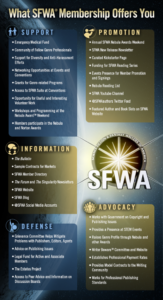 In light of recent discussions, I wanted to jot down a few things that come to mind when what I think about SFWA has to offer game writers, because there’s actually quite a bit.
In light of recent discussions, I wanted to jot down a few things that come to mind when what I think about SFWA has to offer game writers, because there’s actually quite a bit.
SFWA’s got plenty of other efforts in the works, but I’ll wait till they’re tangible before beginning to toot those horns. When they manifest, there’ll be even more reason to join. For now, this actually seems like quite a bit to me, and as I noted, for those game writers who dabble in fiction, there’s even more compelling reasons to join.
I’ll be at Gen Con at the beginning of next month and will be hosting a town hall open session for questions about SFWA and game writers there.
#sfwapro
...
I am part of the Writer’s Symposium this year at Gen Con and looking forward to it. Last time I went to one, it was in Lake Geneva, and a whole lot tinier, I believe, than nowadays.
One lure is the chance to talk with my brother Lowell, who is (is it possible?) a bigger game geek than I. You may be familiar with his Age of Ravens website, which talks a lot about RPG history, design, and gamemastering.
The SFWA Board and the Game Committee are continuing to discuss how to best tweak the qualifications.
Marc Tassin has very kindly set up a town hall event at the con, where I can talk about the decision, listen to your feedback, and take questions. Here’s my schedule overall; if you’re interested in the game writing decision, please let me know if you’re going to miss the Town Hall and would like to set up a time to come and talk to me. I’m currently writing up another blog post on what SFWA offers game writers, because there’s quite a bit.
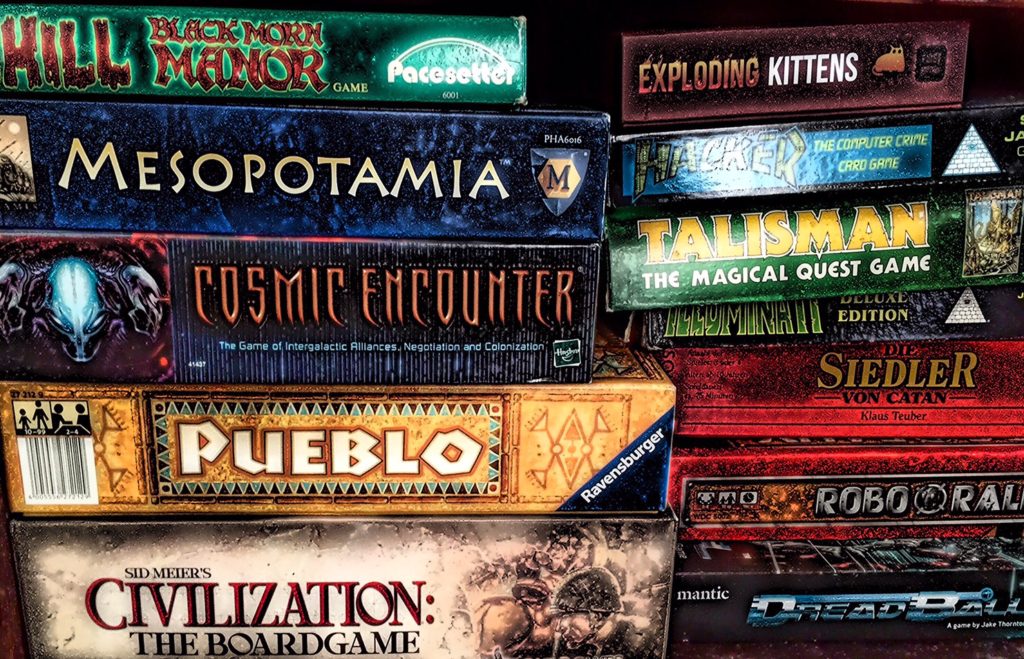
Here’s my schedule; I’ll be updating it as it fills up. Unless noted, an event still had tickets last time I checked.
Thursday
9 AM – attend Writers Symposium Opening Ceremonies
1 PM – Writer’s Craft: Writing Stories in First Person
2 PM – Short Fiction: Where to Start the Story
6 PM – Writer’s Craft: Story to Idea Workshop No tickets left
7 PM – Town Hall meeting about SFWA
Friday
9 AM – Writer’s Craft: Novel Writing 101 Very few tickets left.
10 AM – Character Craft: Hearing the Character’s Thoughts
12 PM – Signing
4 PM – attending a panel
7 PM – Attend friend’s reading and dinner after
Saturday
9 AM – attending a panel
12 PM – Lunch meeting
6 PM – Character Craft: Building Them Up
8 PM – Author Hangout Event
Sunday
9 AM – Read & Critique Session C
11 AM – attending a panel
12 PM – Private event
1 PM – Closing ceremonies
...
 I was looking at Twitter the other day and reading through mentions of the Nebula Conference Weekend, including celebration of our new Grandmaster C.J. Cherryh, when I hit a tweet saying something along the lines of, “I hope SFWA doesn’t think this excuses the choice of picking (another author) in the past”. The way the sentence struck me got me thinking about the sort of perception that allows that particular construction.
I was looking at Twitter the other day and reading through mentions of the Nebula Conference Weekend, including celebration of our new Grandmaster C.J. Cherryh, when I hit a tweet saying something along the lines of, “I hope SFWA doesn’t think this excuses the choice of picking (another author) in the past”. The way the sentence struck me got me thinking about the sort of perception that allows that particular construction.
No, SFWA, aka the organization known as The Science Fiction & Fantasy Writers of America doesn’t think that. Because SFWA isn’t a person. It doesn’t think. Sometimes I like to imagine that SFWA. It lives in a basement somewhere and looks much like a pale green gelatinous cube, covered with lint and cat hair, and various unguessable things lurk in its murky depths, like discarded typewriter ribbons, empty Johnny Walker Black Label bottles, and that phone charging cable you lost a few weeks ago.
...

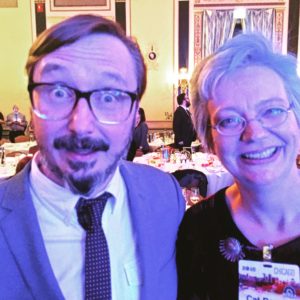
I write this amid a welter of notes, business cards, and obligations/opportunities acquired over the course of what was, for me, the best Nebula weekend I have ever attended. Part of that was the number of attendees who came up to express their appreciation of the programming, the award ceremony, the events, the overflowing book bags, the volunteers, the Nebulas issue of the Bulletin, the volunteer breakfast, and even with the way that they think SFWA has been going over the course of the last year. That is, to put it mildly, most gratifying, and is among the reasons I returned from Chicago renewed, refreshed, and re-enthused. A little under a year of my two-year presidential term lies behind me; I’m curious to see how much can be achieved in the next year.
Thank you to everyone who attended, both in person or virtually by spreading the word and retweeting. It was a weekend that was full of wonderful community and a chance to connect with new and old friends. There were so many moments that will live in my heart, including:
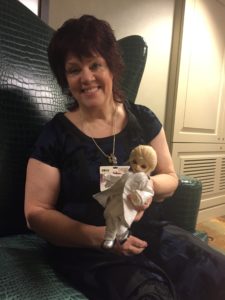
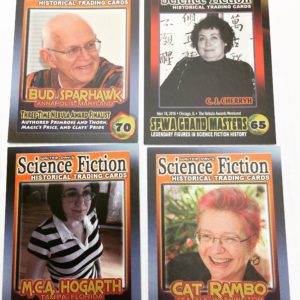
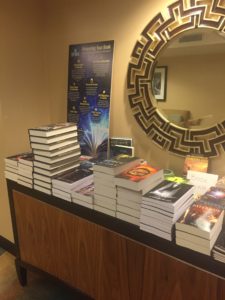
For me, so much of the weekend was a reaffirmation of joy in our genre and the worlds that we love, worlds created by some of the best and brightest. Opportunity to talk with so many talented, kind, and outstanding members of the industry. A chance to stand by one of my heroes, someone whose work I’ve read most of my life and who has been one of my role models, and see her body of work recognized. A chance to be in a place where people treated each other with respect as peers and took pride in each other’s accomplishments, where there weren’t the sort of meanspiritness and petty behaviors that belong on the playground rather than among fellow professionals. A chance to tell people some of what SFWA’s been working hard at in the past year, and some of what’s coming down the pike.
Here’s some of my favorite Nebula write-ups:
...
 We just launched a very cool new effort. Here’s the release:
We just launched a very cool new effort. Here’s the release:
Crowdfunded self-publishing has emerged as a viable and increasingly popular path to creative and financial success for writers, and we continue to develop new initiatives to assist our members in their crowdfunding efforts. Now we are looking to expand our outreach beyond our own membership, to support the field at large.
Beginning in January, SFWA will be making small, targeted pledges to worthy Kickstarter projects projects by non-members, designating them a “SFWA Star Project.” Projects will be selected by the Self Publishing Committee, coordinated by volunteer Rob Balder. Selections will be based on the project’s resonance with SFWA’s exempt purposes, and special preference will be given to book-publishing projects in the appropriate genres.
Funds for these pledges will come from the SFWA Givers Fund, from a $1000 pool approved by the Grants Committee in December. When a pledge results in receiving a donor reward such as a signed book, these items will be auctioned off at fundraising events, to help replenish the Givers Fund.
The first two Star Projects are: Shakespeare Vs Cthulhu by Jonathan Green, and Blacktastic: A Podcast of Black Scifi and Fantasy Stories.
As the landscape continues to change, we face the organizational challenge of finding new ways to inform, support, promote and defend writers of fantasy and science fiction. We hope that this kind of outreach and recognition will not only benefit writers, but also help raise awareness of SFWA’s core mission among independent professionals and their readers.
Over the past few years, I’ve been helping with the effort to open SFWA doors to professional writers publishing outside the traditional structure, to the point where we are the only writers organization (I believe) to accept crowdfunded publications as membership qualifying material. The Star Project effort ties in nicely with that and it’s gratifying to see SFWA continue to expand to match the changing needs of professional F&SF writers.
Rob Balder, who initially proposed the project, has been very patient with the way the wheels at SFWA grind exceedingly and tiresomely slowly at times. Speaking of which, I just got the mail this morning confirming our NetGalley account — we’ll be making that available to members who want to use the NetGalley system to put up books for review. That’s also been in the works a while and part of the slowdown has been my own chaotic inbox and a couple of pieces of mail getting lost in there.
Towards the end of next month, you’ll see yet another very cool project unveiled and available to SFWA members. (I am terrible with secrets and throttling back the urge to spill the beans, but I want it to have maximum impact. But so cool, and so far above the original vision that I have HUZZAH written multiple times in my notes for the demo. Are you intrigued? 😉 You should be.)
At the beginning of next month, I’ll be at Kevin J. Anderson’s Superstars seminars as a guest — looking forward to meeting everyone there.
Oh! And one more change while I’m thinking about it. Cynthia Ward is moving her excellent Market Report from the SFWA Bulletin to the SFWA blog, which I think will solve a couple of issues and also make it available on the website.
...
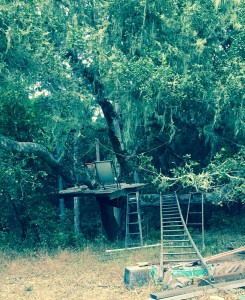
January
I wrote nonfiction column #PurpleSF for Clarkesworld Magazine and my short story “The Ghosteater” appeared in Thirteen: Tales of Transformation, edited by Mark Teppo. The story involves a traveler, Dr. Fantomas, and his companion, who are asked to investigate a haunted restaurant, and it takes place in Tabat.
February
I lounged about the house eating bonbons in February. Well, not really. But I didn’t get anything published.
March
My flash fiction “Bit Player” appeared in Daily Science Fiction, after I wrote it during one of my Flash Fiction Workshops. I went to Emerald City Comicon and had my first book release party there, plus sold it at the Wordfire booth, meeting all sorts of delightful people in the process.
April
The cruelest month was also the busiest month, with the official launch of my first fantasy novel, Beasts of Tabat, the first volume of a fantasy quartet set in the world in which I have placed multiple stories.
I also had stories appear in Airships and Automatons (“Memphis Barbecue”), Beneath Ceaseless Skies (a novelette set in Tabat and related to Beasts of Tabat, “Primaflora’s Journey“), Daily Science Fiction (another story produced in one of my classes, “You Have Always Lived in the Castle“).
I put up Tabat-related flash pieces throughout the month, fifteen total, and another, “A Souvenir of Tabat”, appeared on Quarterreads.
May
“The Subtler Art,” a story set in relatively new locale Serendib, appeared in Blackguards: Tales of Assassins, Mercenaries, and Rogues, featuring retired assassin The Dark and her spouse the wizard-alchemist Tericatus in a game of marital oneupmanship. Also appearing that month was The Haunted Snail, a flash piece (yup, written during one of my classes) in DAILY SCIENCE FICTION, and two Patreon stories, a horror piece titled “Reality Storage” and a story set in the same world as the Blackguards piece, “The Owlkit, the Candymaker, the Beekeeper, and the Brewer”.
And Ad Astra: the SFWA 50th Anniversary Cookbook, which I co-edited with Fran Wilde, appeared, and was a thing of joy and wonder, mostly due to Fran’s effort, as well as those of Sean Wallace. I will remind you all that the cookbook is eligible for a nomination for Best Related Work when Hugo nominations come around, mainly because I love that little book and think it deserves a nod.
June
Patreon story 2611, a horror story set in the apartment complex we have been trying to move out of for several years, appeared. I wrote this last year while we were living in a horrible temporary apartment and trying to get everything packed up and ready to go; most of the events are based in reality.
July
I went on retreat down to southern California and got some work done on Beasts’ sequel, Hearts of Tabat. “California Ghosts” appeared on my blog for Patreon as I switched the campaign over to publicly viewable.
August
Steampunk story “Snakes on a Train” appeared on my blog as part of the Patreon campaign. During the same month I attended Sasquan in Spokane, which was a lot of fun, and read “The Owlkit, the Candymaker, the Beekeeper, and the Brewer” there.
September
Talking in the Night, a literary flash piece appeared on my blog for the Patreon campaign. At the same time, “Marvelous Contrivances of the Heart” appeared in Recycled Pulp, edited by John Helfers. That story owes much to the old Twilight Zone episodes and I hope it manages to evocatively tell the story of an unlikely artist and the consequences of the pieces he creates.
And we moved into Seattle proper, or rather West Seattle, which is AWESOME, and involves an apartment with multiple great writing spaces, including a kitchen table that looks out towards the sound and the mountains.
October
My first on-demand class, Literary Techniques for Speculative Fiction Writers, went up. I took 1500 words of notes for the live workshop, which is based on one I developed for Clarion West and which is one of my most popular classes, and ended up expanding them to 15,000, so I think counting this as a non-fiction publication is quite valid. I still need to go back and reformat and clean this one up somewhat since I’ve learned so much about formatting and setup since then; that’s on the list for January.
At the end of the month, flash piece “As the Crow Flies, So Does the Road” appeared in Grendel Song, newly revived by Paul Jessup.
November
I put up steampunk story, “Laurel Finch, Laurel Finch, Where Do You Wander?” on my website as part of the Patreon campaign. Also “Reflections from Mirror World 57,” a story made up of superhero flash pieces for Outliers.
Two more on-demand classes went up, the Character Building Workshop and Reading to an Audience. As I worked on the former, my ideas about how to shape these classes continued to refine themselves; I’m looking forward to using a lot of what I learned in doing these in classes for 2016.
One piece of past experience that’s been useful in assembling them is a stint of work I did writing study guides for college textbooks, for a range of classes that included economics, retail marketing, and terrorism. I used the software’s capacity to create mini-quizzes with the Character Building Workshop, in a way that led to my only complaint, someone who thought the quizzes were silly.
They are silly — mainly because they’re intended as an amusing interlude that nonetheless gives you a chance to review the core concepts of the material just presented. I’d be curious to hear other takes on them from people who’ve looked at the classes. Should I cut those?
December
December publications included my take on Mrs. Claus in “He Knows When You’re Awake” for Jenn Brozek’s Naughty or Nice holiday anthology, and forthcoming “Dark Shadows on the Earth”.
I also finished up with another nonfiction essay for Clarkesworld Magazine, this time On Reading the Classics and an essay on what I hope for SFWA in 2016 for this blog.
I hope to have one last writing class, Moving from Idea to Draft, done by the end of the year and am working on that, but these classes tend to get more complicated as I write them and this is no exception.
2016
Stories coming out in 2016 include “Red in Tooth and Cog” in The Magazine of Fantasy and Science Fiction (booyah, that is a longtime goal and I am still so tickled to have hit it; “The Mermaid Club,” a conspiracy tale about underground feminists, co-written with Mike Resnick; science fantasy, “Haunted,” co-written with Bud Sparhawk; “Call and Answer, Plant and Harvest,” set in the same city as the owlkit and Blackguards stories, which will appear in in Beneath Ceaseless Skies; “Tongues of Moon Toad” in The Bestiary; Preferences in Chasing Shadows (edited by David Brin) and The Threadbare Magician in Genius Loci, among others.
Status of Current Projects
I need to finish up Hearts of Tabat, and that book was the main casualty of a year whose events included cancer on one side of the family, dementia on another, and a death among my favorite in-laws. I have about 115k words on it and need to make them all make sense and flow nicely into each other. I know the main action of the two books after that. I have some other stuff I’d like to write.
Collaborations coming up include a couple with Rachel Swirsky, one with David Boop, a stroy with Emily Skaftun and Randy henderson that we need to finish up, and one with Tod McCoy.
Upcoming on-demand classes include Creating an Online Presence for Writers, Flash Fiction, Revising and Rewriting, Linguistics for Speculative Fiction Writers with Juliette Wade, Creating Your E-book with Tod McCoy and quite a bit more. And there’s another round of live workshops coming up in January-March.
Books coming out include:
Some Overall Stats:
Stories published in 2015: 33, including flash pieces
Novels published: 1
Nonfiction books published: 1
Number of on-demand classes published: 4
Large writers organizations on which I served on the board: 1
Number of books read: bunches and bunches
Number of blog posts written: I will fill in this number when I have more time.
Happy holidays to all my readers. I hope your end of the year ruminations leave you feeling happy with what you’ve brought to the world over the last twelve months, and that you’re moving forward into productivity and joy in 2016.
#mc_embed_signup{background:#fff; clear:left; font:14px Helvetica,Arial,sans-serif; }
/* Add your own MailChimp form style overrides in your site stylesheet or in this style block.
We recommend moving this block and the preceding CSS link to the HEAD of your HTML file. */
...

At the same time the current HumbleBundle holds one of the things that I’m happiest about from this year, Ad Astra: The SFWA 50th Anniversary Cookbook, along with a lot of other great stuff.
I talked about reading the classics in an Another Word piece for Clarkesworld Magazine. What prompted me to write it? Because there’s been a lot of discussion of the classics as though pointing out problems with a piece is the same as crossing it off the list of stuff to be read. I talked about the decision to change the World Fantasy Award bust back in January for Clarkesworld and emphasized that yeah, you can read H.P. Lovecraft and yet not want to accept an award bearing his face, and moreover, your objections could be pretty complicated and nuanced.
Today I’m finishing up the draft of the third in my series on teaching for the SFWA Bulletin. Part one was about prepping to teach and Part two about teaching, while this last part talks about what to do afterward and how to keep doing it if you find you enjoy teaching. Freelancers, the SFWA Bulletin pays ten cents a word and is actively looking for material, as is the SFWA Blog, which pays six cents a word.
Just turned in my edits for “Red in Tooth and Cog,” which appears early next year in a market that’s been a longtime goal of mine, The Magazine of Fantasy & Science Fiction.
Writing wise, I continue assembling Hearts of Tabat into coherent shape. I’m also finishing up a bespoke story, tentatively titled “She Eats My Heart Entire,” for an anthology and I’ve got a couple of others I want to finish up this month, including a Christmas piece that I should get drafted today and at least a couple for the Patreon campaign.
...
Want access to a lively community of writers and readers, free writing classes, co-working sessions, special speakers, weekly writing games, random pictures and MORE for as little as $2? Check out Cat’s Patreon campaign.

"(On the writing F&SF workshop) Wanted to crow and say thanks: the first story I wrote after taking your class was my very first sale. Coincidence? nah….thanks so much."

(science fiction, short story) Because mermaids lay eggs, hundreds at a time, at least that kind did. And the natural-born ones, they didn’t have human minds guiding them. They were like sharks—they ate, they killed, they ate. Most of the original human mermaids had gotten out when they found out that the seas were full of chemicals, or that instead of whale songs down there, they heard submarine sonar and boat signals. When the last few found out that they were spawning whether they liked it or not, they got out too. Supposedly one or two stayed, and now they live in the sea with their children, twice as mean as any of them.


This site is protected by reCAPTCHA and the Google Privacy Policy and Terms of Service apply. This site is a participant in the Amazon Services LLC Associates Program, an affiliate advertising program designed to provide a means for sites to earn advertising fees by advertising and linking to Amazon.com.